EVENTS
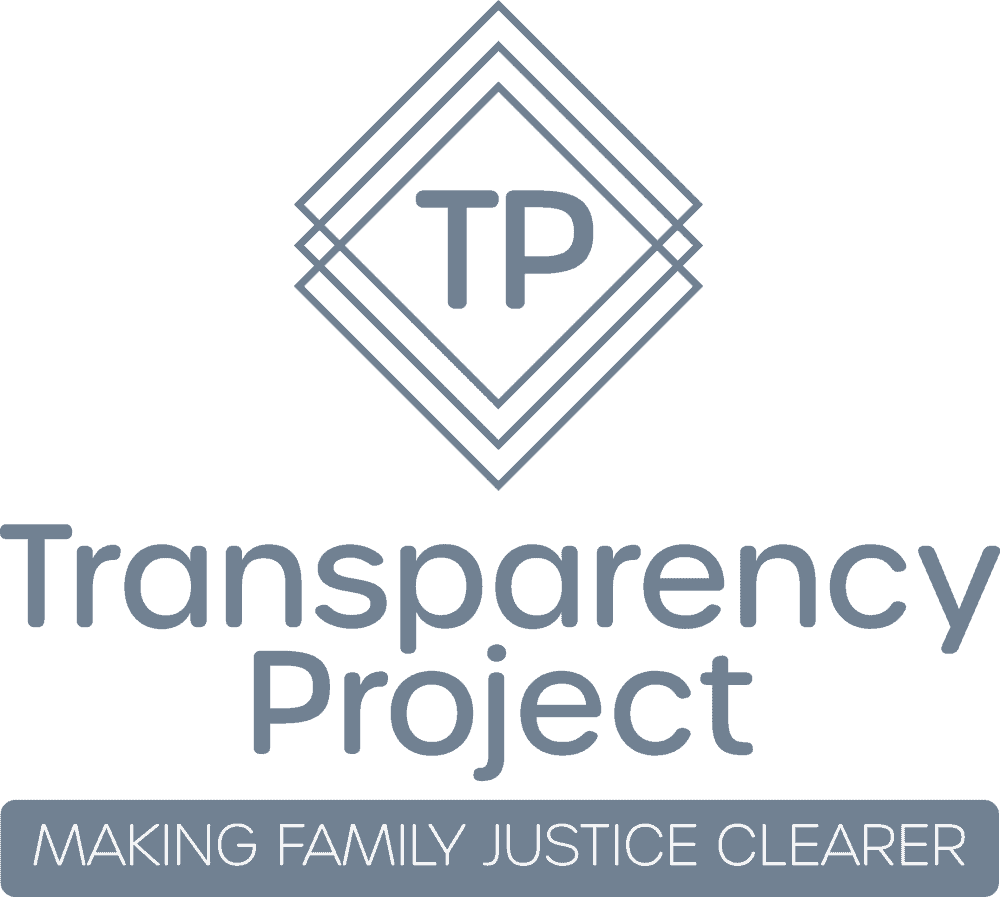
Event Groundrules
We ask that all attendees to our events read and stick to our groundrules. The rules are an important part of making our events possible and to ensure they are constructive and inclusive.
FORTHCOMING EVENTS
Byline Festival
We will be participating in a panel discussion about justice issues at this year’s Byline Festival (bank holiday weekend, Aug 19), and will be running a workshop about reporting family courts. More info here.
PREVIOUS EVENTS
Journalists and legal bloggers attending family courts – A Workshop for lawyers
25 June 2019 5.00pm, St John’s Chambers, Bristol
In light of the Legal Blogging Pilot implemented through PD36J, The Transparency Project has developed a CPD workshop for lawyers interested in brushing up their ‘transparency’ knowledge – whether with a view to taking part in the scheme themselves, or so they feel better prepared for responding to attendances by legal bloggers or journalists in cases where they are instructed. We know that for most advocates the attendance of a journalist at hearings is a rare event, and often catches people by surprise. Even more so where legal bloggers are concerned. What is the law and procedure? How should you advise your client, and how should you respond to any application these reporters might make?
Whilst we are keen to encourage lawyers to become aware of and involved in the legal blogging pilot, the purpose of the event is wider than that – to inform and advise on what restrictions on publication would apply or how the pilot scheme operates in the event that a legal blogger attends court.
Our aim is to assist advocates to best serve the interests of their clients whether parent, child or local authority. We’d also like to take the opportunity to gather any feedback from participants on the issues that may be emerging from the pilot scheme and their experiences of it or worries about it.
Because we want to facilitate frank discussion and enable participants to ask questions about things they are concerned or unsure about, this event is a lawyer-only event and will not be video recorded.
This event is open to any lawyer conducting advocacy in the family court in England & Wales or who would be eligible to attend court under the legal bloggers pilot. Tickets are free, but donations are invited. Ticket numbers limited. Please book via our Eventbrite booking page.
This event has previously run at Gresham College, London. This workshop has been made possible through the kind sponsorship of Bloomsbury Professional Family Law and the support of St John’s Chambers, where the event will be held.
About our Sponsors
Bloomsbury Professional Family Law publish cornerstone works such as Hershman & McFarlane: Children Law & Practice as well as new, pioneer titles covering areas such as transparency in family courts, children’s views and evidence, vulnerable witnesses and child migration, making them family law publisher of choice for progressive thinking professionals. Their kind sponsorship has partly funded this event and the printing of the guidance note.
Panel discussion : Allegations of domestic abuse : are family courts working for children & families?
22 November 6pm, Gresham College, London
Tickets free, but donations invited. Ticket numbers limited. Please book via our Eventbrite booking page.
The Transparency Project is facilitating this event to mark the publication of its new guidance note :
HOW DO FAMILY COURTS DEAL WITH CASES ABOUT CHILDREN WHERE THERE MIGHT BE DOMESTIC ABUSE?
The event will be chaired by journalist and Transparency Project member Louise Tickle, and the panel will include :
- Mr Justice Keehan QC
- Sam King QC
- Sarah Parsons (CAFCASS)
- Bob Greig (Only Dads / Only Mums)
- Dr Freda Gardner (Psychologist)
- Olive Craig (Legal Officer, Rights of Women)
We encourage contributions from all attendees and the event will be run so as to maximise audience participation.
The guide and this event have been made possible through a grant from the Legal Education Foundation and the kind sponsorship of Bloomsbury Professional Family Law.
About our Supporters
 Bloomsbury Professional Law publish cornerstone works such as Hershman & McFarlane: Children Law & Practice as well as new, pioneer titles covering areas such as transparency in family courts, children’s views and evidence, vulnerable witnesses and child migration, making them family law publisher of choice for progressive thinking professionals. Their kind sponsorship has partly funded this event and the printing of the guidance note.
Bloomsbury Professional Law publish cornerstone works such as Hershman & McFarlane: Children Law & Practice as well as new, pioneer titles covering areas such as transparency in family courts, children’s views and evidence, vulnerable witnesses and child migration, making them family law publisher of choice for progressive thinking professionals. Their kind sponsorship has partly funded this event and the printing of the guidance note.
Our grant from Legal Education Foundation has made the writing and launching of the guidance note possible.
CPConf2018 : Future Risk of Emotional Harm – justified grounds to remove children? 15 Sept. ’18
How can this justify the removal of children from their parents’ care?
#CPConf2018 presents contributions from various speakers, followed by a panel discussion and contributions from the audience.
The aim of the event is to
- understand the historic basis and justification for the use of ‘risk of future emtional harm’ as a reason to remove children
- explain and discuss the parameters of ’emotional harm’ – how do the courts define it?
- discuss people’s concerns about this as a rationale for removing children
- consider how these concerns can be addressed
Anyone with an interest in the child protection system is welcome. We hope that parents, social workers, lawyers and other professionals will find it useful.
11am to 1pm Speakers
-
- Sarah Phillimore – site administrator of Child Protection Resource online, considering the historical justifications for reliance on ‘risk of future emotional harm’ and discussion of The Transparency Project’s Guidance Note on the use of expert evidence in family proceedings
- Professor Lauren Devine of the University of the West of England, discussing her recent research about evaluation of risk in care proceedings
- ‘Annie’ – considering the parent’s perspective; blogs at www.survivingsafeguarding.co.uk – a parents guide to the child protection process
- Louise Tickle – journalist – what does ‘risk of future harm’ sound like to the ‘intelligent outsider’ ?
- Lucy Reed – Chair of The Transparency Project, barrister and author of Pink Tape blog; will discuss the importance of transparency in the family justice system with particular reference to The Transparency Project’s forthcoming Guidance Note about issues of domestic abuse in family proceedings.
- Simon Howath – Academic at university of Birmingham. Previously principal social worker. Research interests include social work and social harm and fatherhood – the social worker’s perspective
2pm – 4.30pm Audience and panel discussion
- Panel members include the morning speakers and
- Professor Andy Bilson – Emeritus Professor of social work at University of Central Lancashire, who will introduce and discuss his recent research about adoption trends
- Representatives from Special Guardians and Adopters Together who will discuss the results of their recent survey about what those polled understand to mean by ‘future risk of emotional harm’.
- Respect the law regarding the confidentiality of care proceedings (the organizers will interpret this law with caution and their interpretation will be final for the purpose of the conference rules);
- Allow speakers to speak without interruption;
- Raise any questions at the end of each session;
- Allow the chair / facilitator to decide who should speak and when, and to impose reasonable limits on the length and topic of individual contributions.
- Participate in any discussions with courtesy and respect for one another’s views; robust criticism is fine but abusive or personal remarks are, of course, not.
- We would ask that recordings are not made of the conference and that photographs are not taken due to reporting restrictions preventing the identification of some attendees. We hope to audio record the panel discussion (subject to consent of the panel members) and to publish a transcript of it in due course.
- Participants may identify themselves by full or first name if they wish, but if they prefer may simply identify their role in the child protection system.
- We will not permit comments that appear in the view of the Chair to be discriminatory about any particular group of people, be that by reference to their race, religion or sexuality etc. We want to encourage free and open discussion within those limits so delegates are asked to keep that in mind and respect the decision of the Chair to use her discretion to move discussions on from any particular comment, to allow as many people as possible to directly join in.
- We cannot permit entry to or discussion of those currently engaged in / under investigation for criminal proceedings. However, we otherwise don’t plan to exclude anyone from the conference based on their views; or their actions outside this conference. Even where we may disagree with some of those views or actions.
- Attendance is in a personal capacity and, of course, doesn’t imply that anyone is speaking on behalf of any organisation they work for or are associated with.
- We will exclude anyone who doesn’t follow the ground rules of the conference or intend to. This is to protect other participants, enable a wide range of voices without any dominating, and to ensure the conference isn’t disrupted or its aims distorted.
- We want people to live tweet and write about this conference and we want to publish talks and papers and records of discussion wherever possible. To ensure we can do this it is important that the privacy of individuals is maintained and in particular that the anonymity of children is maintained. This means we can’t allow you to identify yourself or someone else as a parent of a child involved in a family court case; or to name the child involved in a court case; or to discuss the details of what has gone on in court in individual cases (unless the information is contained in a published judgment or a judge has specifically given permission). We ask that anyone wishing to discuss a case, in which they have been involved, should do so with regard to both the feelings of all involved and bearing in mind the law about protecting children involved in court cases. If any participant is unsure what they can discuss, they may ask a member of the organising committee who will attempt to assist. The committee will advise what they as organisers feel able to permit and believe is likely to be within the law, but cannot give legal advice.
- Although the conference aims to share views and experiences of the current system, it is not and cannot be an inquiry into or an appeal from individual cases.
Transparency Debate :
The Family Court : Should privacy trump accountability?
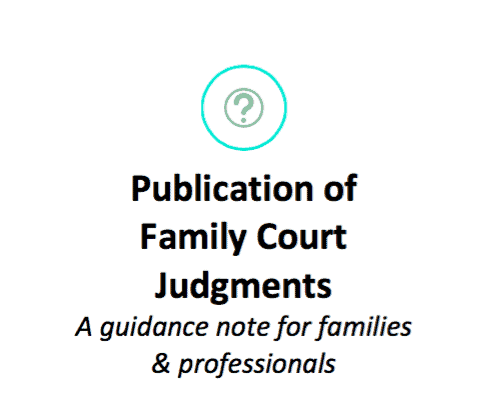
The Transparency Project hosted a debate on 5 December in Bristol at 6pm at The Station, to mark the publication of our Guidance Note for families and professionals : Publication of Family Court Judgments. The debate was chaired by His Honour Judge Stephen Wildblood QC and the panel included :
- The Honourable Mr Justice Baker,
- Louise Tickle (freelance journalist),
- Gretchen Precey (NAGALRO Chair),
- Sophie Ayers (Independent Social Worker (formerly in statutory services))
- Callum May (BBC News Producer)
- Lucy Reed (barrister, Chair of The Transparency Project)
You can view a video of the event on YouTube.
This event was made possible through funding from the Legal Education Foundation and sponsorship from Simpson Millar LLP.
5 April 2017 : Reporting the Family Courts – Are we doing it justice?
A collaborative discussion between those working in and reporting on the family justice system
This event has now taken place. You can read about it and view a video of the event here.
This event, hosted by The Transparency Project to coincide with the publication of our Media Guide for journalists, aimed to promote cross-silo discussion about the reporting of family courts and how we might improve it.
- What are the barriers to good reporting?
- What are the risks to vulnerable children or adults?
- What does good practice (for lawyers, social workers, judges and journalists) look like?
- How can the family courts and professionals in family justice work collaboratively with the media to enable public debate whilst protecting privacy?
The event was chaired by Jo Delahunty QC, Gresham Professor of Law, and will take the format of a panel discussion followed by questions and contributions from the floor. Panellists will include :
- The Honourable Mr Justice Peter Jackson
- Sanchia Berg (BBC)
- Brian Farmer (Press Association)
- Dave Hills (immediate past Chair Association of Directors of Children’s Services)
- Will Moy (Director, Full Fact)
- Gill Phillips (Director of Editorial Legal Services, Guardian News & Media)
- Lucy Reed (Barrister, Chair The Transparency Project)
- Debbie Singleton (Co-Chair, Association of Lawyers for Children)
DETAILS :
5 April, 6.00pm-8.30pm
Gresham College, London.
This event was kindly sponsored by the Family Law Bar Association, which has enabled us to run the event without charging for tickets. If you wish to support our work you can gift aid donations to The Transparency Project via Just Giving.
Multi-Disciplinary Conference : Where do we go from here? 3 June 2016
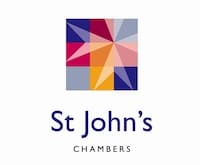 Following the success of CPConf2015 – Is the Child Protection System Fit for Purpose? – the Transparency Project supported the second multi disclipinary conference on June 3rd 2016, once again sponsored by St John’s Chambers and Lexis Nexis Family Law (formerly Jordans).
Following the success of CPConf2015 – Is the Child Protection System Fit for Purpose? – the Transparency Project supported the second multi disclipinary conference on June 3rd 2016, once again sponsored by St John’s Chambers and Lexis Nexis Family Law (formerly Jordans).  The previous conference discussed serious concerns about the current child protection system. The second focussed on what we can do to make things better for all involved, building on the suggestions and discussions sparked by CPConf2015 – see for example the Transparency Project guidelines on recording interactions between parents and professionals. #CPConf2016
The previous conference discussed serious concerns about the current child protection system. The second focussed on what we can do to make things better for all involved, building on the suggestions and discussions sparked by CPConf2015 – see for example the Transparency Project guidelines on recording interactions between parents and professionals. #CPConf2016 Timetable of the Day
| 9.30-10.00 | Registration |
| 10.00-10.15 | Opening remarks, District Judge Gailey |
| 10.15-10.45 | Update from Dr Lauren Devine about her research into the CP system |
| 10.45-11.15 | Maggie Siviter: Risk, Challenge and Social Work. Maggie will talk about how current practices can prevent effective assessment, planning and the best outcomes. |
| 11.15-11.45 | Coffee Break |
| 11.45-12.15 | Surviving Safeguarding; parent and blogger |
| 12.15 -12.45 | Sarah Phillimore will give an overview of the work of Dr Claire Fenton-Glynn : Adoption – the European Perspective (Dr Claire Fenton-Glynn is unable now to attend in person) UPDATE: Andy Bilson will also present his recent research on CP referral rates : |
| 12.45-13.15 | Lucy Reed (Barrister & Chair of the Transparency Project) and Louise Tickle (Award winning journalist and Transparency Project Group Member) : Transparency – making it work in practice. |
| 13.15-14.00 | LUNCH |
| 14.00-15.00 | WORKSHOPSWorkshop A – Adoption, Trauma and Support: with Amanda Boorman of The Open Nest and the POTATOsWorkshop B – What other options for help and support for parents?With Jerry Londsdale on McKenzie Friends and Barrister Victoria Teggin on mediation in child protection. Victoria will talk about optimising outcomes for children through creating the opportunity for collaborative working between all involved in child protection litigation. |
| 15.00- 16.30 | PANEL DISCUSSIONS Q and A with speakers and other distinguished guests; including Brid Featherstone, Louise Tickle and the FRG. |
Louise Tickle Louise is an award winning education and social affairs journalist who has reported extensively on adoption, care proceedings and the effects of legal aid cuts on people affected by domestic abuse and relationship breakdown. You can see more of her work on her website: www.louisetickle.co.uk She tweets at @louisetickle Lucy Reed Lucy Reed was called to the Bar in 2002 and is a barrister at St John’s Chambers She specialises in children work and is also a well known legal blogger at Pink Tape. Lucy is the author of ‘Family Court without a Lawyer’ and she has a keen interest in examining the challenges faced by litigants in person in navigating the legal system. Lucy sits as a Deputy District Judge. Lucy is one of the Trustees of the Transparency Project. Dr Lauren Devine Dr Lauren Devine of UWE Bristol Law School has been a Senior Lecturer since 2009. She is the Director of the Interdisciplinary and Expert Evidence Network (IEEN) and Executive Director of the SAFER Initiative. Dr Devine has been awarded a prestigious grant by the ESRC for a research project entitled ‘Rethinking child protection strategy: evaluating research findings and numeric data’ to consider whether current intervention strategy is justified. Her research derives from an interest in the legal relationship between the state and individuals, in particular the balance between state powers and private rights. She examines the issues and tensions surrounding non-consensual state interventions, with a particular interest in child protection and safeguarding law. Maggie Siviter DipSW, CertMS: Maggie qualified as a social worker in 1992 after reaching senior management within the children’s residential care sector. Her primary experience has been in the field of Child Protection and, more recently, Independent Reviewing Officer (IRO)/Child Protection conference chair and as a Strategic Manager for Safeguarding. She is a skilled risk assessor with the rare ability to understand risk across the spectrum; from an individual child’s perspective to the way complex strategic multi-agency and corporate environments deliver children’s services. Maggie also has significant experience of the third sector, within the child protection sphere – NSPCC and NCH, and has the ability to understand the safeguarding environment from a multi-agency perspective. Maggie also founded the charity, Martha Care, which is a hospital based support and advice service for families when their child is admitted with a serious illness or injury and has supported over 500 families to date. Dr Claire Fenton-Glynn Claire’s research lies in the field of human rights and the protection of children. She has published on a wide range of issues including intercountry adoption, international surrogacy, and cross-border child protection, as well as children’s rights under the European Court of Human Rights. At the core of this research is the interaction between international and regional human rights instruments and domestic law, and the way in which these frameworks can be used to implement children’s rights. Her first book, “Children’s Rights in Intercountry Adoption” was awarded the Inner Temple Book Prize for New Authors, as well as the Faculty of Law’s Yorke Prize. Claire works as a consultant on children and youth rights with the United Nations Office of the High Commissioner for Human Rights, and is a fellow of the Centre for International Sustainable Development Law. She has also worked with organisations such as the European Union, Save the Children, and Avocats Sans Frontieres on issues concerning child protection, human rights, and rule of law. She contributes a quarterly update on European family lawin the International Family Lawjournal, and from February 2016 will write a bi-monthly column in Family Law.
- Respect the law regarding the confidentiality of care proceedings (the organizers will interpret this law with caution and their interpretation will be final for the purpose of the conference rules);
- Allow speakers to speak without interruption;
- Raise any questions at the end of each session;
- Allow the chair / facilitator to decide who should speak and when, and to impose reasonable limits on the length and topic of individual contributions.
- Participate in any discussions with courtesy and respect for one another’s views; robust criticism is fine but abusive or personal remarks are, of course, not.
- We would ask that recordings are not made of the conference and that photographs are not taken due to reporting restrictions preventing the identification of some attendees. We hope to audio record the panel discussion (subject to consent of the panel members) and to publish a transcript of it in due course.
- Participants may identify themselves by full or first name if they wish, but if they prefer may simply identify their role in the child protection system.
- We will not permit comments that appear in the view of the Chair to be discriminatory about any particular group of people, be that by reference to their race, religion or sexuality etc. We want to encourage free and open discussion within those limits so delegates are asked to keep that in mind and respect the decision of the Chair to use her discretion to move discussions on from any particular comment, to allow as many people as possible to directly join in.
- We cannot permit entry to or discussion of those currently engaged in / under investigation for criminal proceedings. However, we otherwise don’t plan to exclude anyone from the conference based on their views; or their actions outside this conference. Even where we may disagree with some of those views or actions.
- Attendance is in a personal capacity and, of course, doesn’t imply that anyone is speaking on behalf of any organisation they work for or are associated with.
- We will exclude anyone who doesn’t follow the ground rules of the conference or intend to. This is to protect other participants, enable a wide range of voices without any dominating, and to ensure the conference isn’t disrupted or its aims distorted.
- We want people to live tweet and write about this conference and we want to publish talks and papers and records of discussion wherever possible. To ensure we can do this it is important that the privacy of individuals is maintained and in particular that the anonymity of children is maintained. This means we can’t allow you to identify yourself or someone else as a parent of a child involved in a family court case; or to name the child involved in a court case; or to discuss the details of what has gone on in court in individual cases (unless the information is contained in a published judgment or a judge has specifically given permission). We ask that anyone wishing to discuss a case, in which they have been involved, should do so with regard to both the feelings of all involved and bearing in mind the law about protecting children involved in court cases. If any participant is unsure what they can discuss, they may ask a member of the organising committee who will attempt to assist. The committee will advise what they as organisers feel able to permit and believe is likely to be within the law, but cannot give legal advice.
- Although the conference aims to share views and experiences of the current system, it is not and cannot be an inquiry into or an appeal from individual cases.
Previous event :
Multi-Disciplinary Conference : Is the child protection system fit for purpose?
1 June 2015, NCVO London.
 We were joined by Dr Lauren Devine of UWE who is currently undertaking research into the evidence base for our current system and by Brigid Featherstone, co-author of ‘Re Imagining Child Protection’. The event was sponsored by St John’s Chambers, Bristol, Jordans Publishing and Bath Publishing.
We were joined by Dr Lauren Devine of UWE who is currently undertaking research into the evidence base for our current system and by Brigid Featherstone, co-author of ‘Re Imagining Child Protection’. The event was sponsored by St John’s Chambers, Bristol, Jordans Publishing and Bath Publishing. Timetable for the Day
| 9.15-9.45 | Registration | |||||||||||
| 9.45 -9.55 | Introduction and welcome | Lucy Reed | ||||||||||
| 9.55 -10.10 | Opening Speech | Sir Mark Hedley | ||||||||||
| 10.10-10.40 | Evaluation of the Evidence Base for current practice | Dr Lauren Devine UWE | ||||||||||
| 10.40-11.10 | Re-Imagining Child Protection | Brigid Featherstone | ||||||||||
| 11.10-11.30 | Coffee break | |||||||||||
| 11.30-12.00 | Expert reports and assessments; new directions for 2015. | Lisa Wolfe and Vicki Ellis | ||||||||||
| 12.00-12.30 | Care leavers’ perspectives | Kirsty Seddon | ||||||||||
| 12.30-1.15 | Parents’ perspectives on the system | Introduction by Jerry Londsdale . | ||||||||||
| 1.15-2.00 | Lunch | Invitation to complete our online survey. | ||||||||||
| 2.00 – 3.15 | Parallel discussion groups/workshops | See below | ||||||||||
| 2.45-3.15 | refreshments and informal discussions | Post-it note ‘instant’ feedback wall | ||||||||||
| 3.15-4.15 | Top table panel lead Q&A discussion | Top table of morning’s plenary speakers | ||||||||||
| 4.15 – 4.30 | Closing summary, distil the day and key outcomes – call to action? | Sarah Phillimore | ||||||||||
WORKSHOPS from 2pm to 3.15pm
|
||||||||||||
- Navigate the child welfare and family justice system, which can be daunting and overwhelming;
- Understand their rights and options in order that they can make informed decisions and challenge poor decision making;
- Work constructively with practitioners, which is key to keeping children at risk safely at home;
- Influence decisions about their children when the state is involved.
Family Rights Group promotes policies and practices, including family group conferences to help children to be raised safely and securely within their families. The Charity has established ‘Your Family Your Voice: An Alliance of families and practitioners seeking to transform the system’ and are supporting a national parents’ panel, comprising birth and adoptive mothers and fathers whose children have been subject to statutory state intervention. We lead the work of the Kinship Care Alliance, campaigning for family and friends carers, including grandparents and older siblings who are raising children that cannot live at home. Cathy has recently written What happens to siblings in the care system? (2015, FRG) and edited The family group conference toolkit – a practical guide to setting up and running an FGC service (2006, (FRG/DfES/Welsh Assembly); Family Group Conferences – Where Next? Policies and Practices For The Future (2007, FRG); Working with risky Fathers: Research findings on working with domestically abusive fathers and their involvement with children’s social care services (2011, FRG); and Big Bruv Little Sis- Research findings on sibling carers raising their younger sisters and brothers (2011, FRG). http://www.frg.org.uk/involving-families/family-and-friends-carers/family-and-friends-carers-news-and-developments In her spare time, Cathy is Chair of the Holocaust Memorial Day Trust and is Vice Chair of the Parent Promoters’ Foundation in Lambeth, which set up the first parent promoter comprehensive school in Britain. Jane Auld – National Parenting Initiative Jane practised as a barrister for 25 years in London and Bristol, the last 10 years specialising at the Family Bar, ceasing practice to bring up her own family. Since October 2012 she has been the national coordinator of the National Parenting Initiative, a church initiative to encourage all churches in the UK to run parenting courses. Vicki Ellis Vicki Ellis is an experienced social work practitioner, qualified since 2002. She has worked for East Sussex and Brighton Children’s Services departments, and as an independent social worker. She has worked in a combination of front line locality teams and specialist family assessment and intervention services. Over the past five years, Vicki has specialised in working in the area of social work and parental drug and alcohol use, culminating in her appointment as an Advanced Practitioner in April 2013 for SWIFT. SWIFT comprises of a number of different multi-disciplinary teams which undertake assessment and intervention with families in which complex difficulties are impacting on the safe care of children. The service in East Sussex is jointly commissioned by both health and social care and in her current role Vicki is responsible for the management of the multi-disciplinary team serving a problem solving court in East Sussex. SWIFT for FDAC was launched in East Sussex in in April 2015. Dr Kate Harrington Dr Kate Harrington is a Lecturer in Law at the University of Exeter and was called to the bar in 2014. Before becoming a lawyer she taught linguistics at King’s College London and has a PhD on the language of social interaction. She has published on gender and language and on the First-tier Property Tribunal. As a forensic linguist, she is developing insights into the experiences of litigants in person and the impact language has on legal process and outcome across a range of legal areas. Sir Mark Hedley Sir Mark Hedley is a former High Court Judge who has been involved in some of the most important family court decisions of recent years. His comments in Re L (Care: Threshold Criteria) (Family Division 26 October 2006) remain particularly pertinent in 2015 and provide the background for discussions at the conference about what we can expect from the child protection system. “Society must be willing to tolerate very diverse standards of parenting, including the eccentric, the barely adequate and the inconsistent. Children will inevitably have both very different experiences of parenting and very unequal consequences flowing from it. It means that some children will experience disadvantage and harm, while others flourish in atmospheres of loving security and emotional stability. These are the consequences of our fallible humanity and it is not the provenance of the State to spare children all the consequences of defective parenting.” Sarah Phillimore Sarah was called to the Bar in 1994 and has been a member of St John’s Chambers in Bristol since 2010 and specialises in care proceedings. She is the site administrator of www.childprotectionresource.online and has a long standing interest in how the child protection system operates and how it can be improved. Sarah is one of the Trustees of the Transparency Project. Surviving Safeguarding Surviving Safeguarding is a parent who has spent three years in proceedings as a result of issues surrounding her mental health. She had a newborn removed at birth and placed into foster care with an ultimate plan of non-consensual adoption, however she contested this plan through the court system and won, despite being told she had a 0.2% chance of success. Her baby was ultimately returned to her care. She now advises other parents going through the Child Protection Process, facilitates workshops for trainee Social Workers from a parent’s perspective, and advocates for breastfeeding mums, specialising in newborn removal. She is the Author of a new Blog “Surviving Safeguarding”, which aims to give parents the right advice in order to ensure the best interests of the family are met. Lucy Reed Lucy Reed was called to the Bar in 2002 and is a barrister at St John’s Chambers She specialises in children work and is also a well known legal blogger at Pink Tape. Lucy is the author of ‘Family Court without a Lawyer’ and she has a keen interest in examining the challenges faced by litigants in person in navigating the legal system. Lucy sits as a Deputy District Judge and is also a qualified mediator. Lucy is one of the Trustees of the Transparency Project. Kirsty Seddon Kirsty Seddon is a 27 year old care leaver who has involvement with the child care system her entire life. Kirsty has experience of involvement as a child needing protection, a child within the care system, a care leaver and most recently a parent. Kirsty is part of an on-going cycle whereby her mother was in care, she was in care and now her own daughter is within the system as an adopted child. For the past 6 years Kirsty has been heavily involved in campaigning for change within the system which failed so many children and parents. Kirsty has attempted to create change within the care system using the court processes, she appealed against her Daughter’s proceedings upto an application to the European Court of Human Rights which reached judgement stage, she tried using the civil route to hold her council to account for failing her as a child within the system, and more recently she is attempting to hold the council to account for their actions and involvement post the making of an adoption order. Kirsty’s experience within the system has allowed her insight of the system from many people’s point of view, including children, parents, social workers and other professionals, this has allowed her to see where the system has flaws and failures which need urgently addressing. Beth Tarleton is a Senior Research Fellow at the Norah Fry Research Centre, University of Bristol. Beth co-ordinates the Working Together with Parents Network, which is a free network for professionals working with parents with learning difficulties/disabilities: wtpn.co.uk. She has undertaken a number of studies around positive support for parents with learning difficulties over the last ten years, including: Working Together with Parent Network (2009) Supporting parents with learning disabilities and difficulties – Stories of positive practice. Bristol: Norah Fry Research Centre. Tarleton, B. (2013) Expanding the Engagement Model: the role of the specialist advocate in supporting parents with learning disabilities in child protection proceedings. Journal of Public Child Welfare, vol. 7, no.5, pp. 675-690. Tarleton, B., Ward ,L. and Howarth ,J. (2006) Finding the Right Support? A review of issues and positive practice to support parents with learning difficulties and their children, London: Baring Foundation http://www.bristol.ac.uk/wtwpn/resources/right-support.pdf Betsy de Thierry Betsy de Thierry is a psychotherapist and teacher who has pioneered the UK charity The Trauma Recovery Centre (www.trc-uk.org) which has a centre in Bath, one in Bristol and current plans for many more. The charity provides therapy to more than 100 children, young people and their parents each week. The TRC has also pioneered a therapeutic alternative education centre for children who have been excluded from mainstream schools due to their response to traumatic experiences. She is the author of ‘Teaching the Traumatised child’ published by Grosvenor publishing and delivers training to teachers, police and psychotherapists and other professionals around the UK. Nadine Tilbury – Policy Officer for the Working Together with Parents Network, Norah Fry Research Centre, Bristol University. Nadine is a lawyer and policy adviser with over 20 years’ experience of both the court room and of contributing to new legislation, designing and implementing national policies and operational guidance on issues such as safeguarding, child protection, victims and witnesses with disabilities, child witnesses, disability hate crime, and the family-criminal court interface. She was a contributing author to the Law Society’s Related Family and Criminal Proceedings – A good practice guide (2007); Working Together To Safeguard Children (2006) and (2010) HM Government; Achieving Best Evidence in Criminal Proceedings; Guidance on interviewing victims and witnesses, and guidance on using special measures. (2011) HM Government; Aequilibrium. Instruments for Lifting Language Barriers in Intercultural Legal Proceedings. EU Project; and Effective Investigation of Child Homicide and Suspicious Deaths. David Marshall, QPM. Blackstones. Oxford University Press. 2012. Alice Twaite Alice Twaite is a non-practising family law solicitor and registered social worker. She works freelance advising families at the Family Rights Group and as a volunteer for Project 17, advising destitute families with no recourse to public funds. She is a member of the Transparency Project and previously worked as a solicitor at Fisher Meredith and a part time legal advisor at Family Rights Group. Working Together with Parents Network (WTPN) Supporting professionals working with parents with learning difficulties The WTPN provides a free UK-wide resource for professionals working with parents with learning difficulties. It shares positive practice in a range of sectors including health and social care, legal, education and advocacy support. It has four regional groups in England and country-wide networks in Scotland and Wales. Members of the network share a common ethos as reflected in the Good Practice Guidance on Working with Parents with Learning Disabilities (DoH/DfES2007):
- The welfare of the child is paramount (UN Convention on the Rights of the Child).
- Parents with learning difficulties have a right to a family life and are entitled to appropriate help from the State to carry out their parenting role (UN Convention on the Rights of Persons with Disabilities).
- Public authorities have a duty to advance, actively, equality of opportunity for parents with learning difficulties (Equality Act 2010).
See our website www.wtpn.co.uk or email: wtw-pn@bristol.ac.uk for:
- Information and research about parents with learning difficulties, guidance, packs, toolkits and links to other organisations.
- Details of aspects of policy that every professional should know and understand.
- Membership information. The members-only blog allows for Q & A’s, information and discussions.
- Respect the law regarding the confidentiality of care proceedings (the organizers will interpret this law with caution and their interpretation will be final for the purpose of the conference rules);
- Allow speakers to speak without interruption;
- Raise any questions at the end of each session;
- Allow the chair / facilitator to decide who should speak and when, and to impose reasonable limits on the length and topic of individual contributions.
- Participate in any discussions with courtesy and respect for one another’s views; robust criticism is fine but abusive or personal remarks are, of course, not.
- We would ask that recordings are not made of the conference. We hope to audio record the panel discussion (subject to consent of the panel members) and to publish a transcript of it in due course.
- Participants may identify themselves by full or first name if they wish, but if they prefer may simply identify their role in the child protection system.
- We don’t plan to exclude anyone from the conference based on their views; or their actions outside this conference. Even where we may disagree with some of those views or actions.
- Attendance is in a personal capacity and, of course, doesn’t imply that anyone is speaking on behalf of any organisation they work for or are associated with.
- We will exclude anyone who doesn’t follow the ground rules of the conference or intend to. This is to protect other participants, enable a wide range of voices without any dominating, and to ensure the conference isn’t disrupted or its aims distorted.
- We want people to live tweet and write about this conference and we want to publish talks and papers and records of discussion wherever possible. To ensure we can do this it is important that the privacy of individuals is maintained and in particular that the anonymity of children is maintained. This means we can’t allow you to identify yourself or someone else as a parent of a child involved in a family court case; or to name the child involved in a court case; or to discuss the details of what has gone on in court in individual cases (unless the information is contained in a published judgment or a judge has specifically given permission). We ask that anyone wishing to discuss a case, in which they have been involved, should do so with regard to both the feelings of all involved and bearing in mind the law about protecting children involved in court cases. If any participant is unsure what they can discuss, they may ask a member of the organising committee who will attempt to assist. The committee will advise what they as organisers feel able to permit and believe is likely to be within the law, but cannot give legal advice.
- Although the conference aims to share views and experiences of the current system, it is not and cannot be an inquiry into or an appeal from individual cases.
Original blog post here.
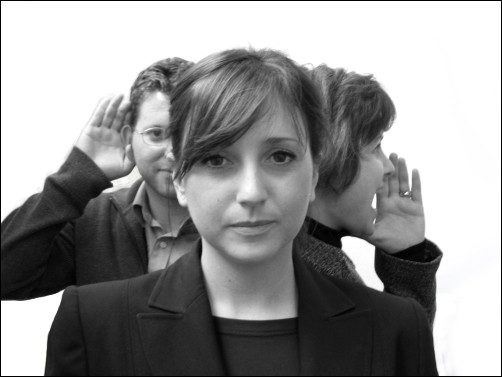
Blog posts about events

What’s the future for open justice and ‘justice system data’ policy?
“Our justice system is years behind other public services like health and education in collecting and using data to understand performance and impact” says Natalie Byrom, director of research at the Legal Education Foundation (TLEF). “We need a fundamental shift in...
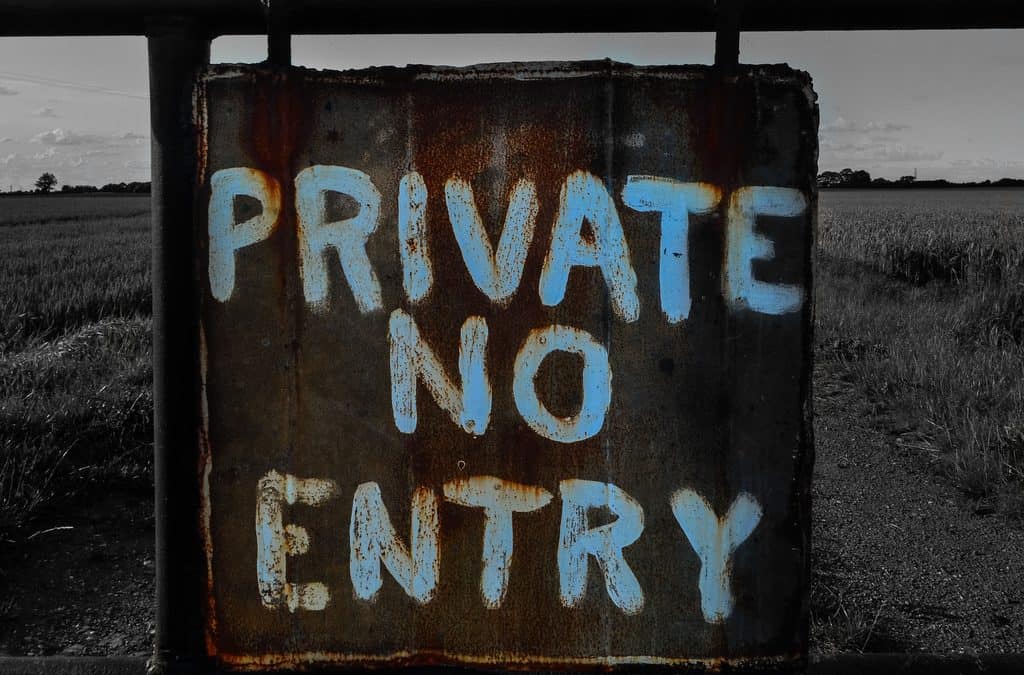
LEGAL BLOGGING IN THE FAMILY COURT – A NEW PHASE
At the end of January 2023, a new reporting pilot [update, the linked guidance from November has now been superceded by a version dated 18 January here - readers should check the TIG page regularly for the most up to date version as this document may change as the...
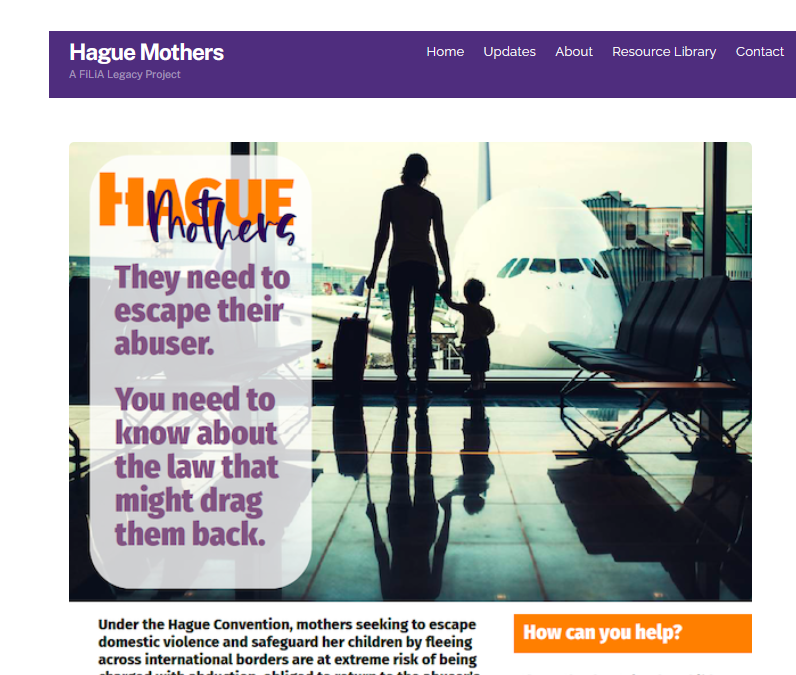
Hague Mothers
'A good law gone bad' is how the Hague Convention on International Abduction was described in a session organised by the Filia Hague Mothers project at an international feminist conference held in Cardiff over the weekend. The Convention was drafted in 1980 and...
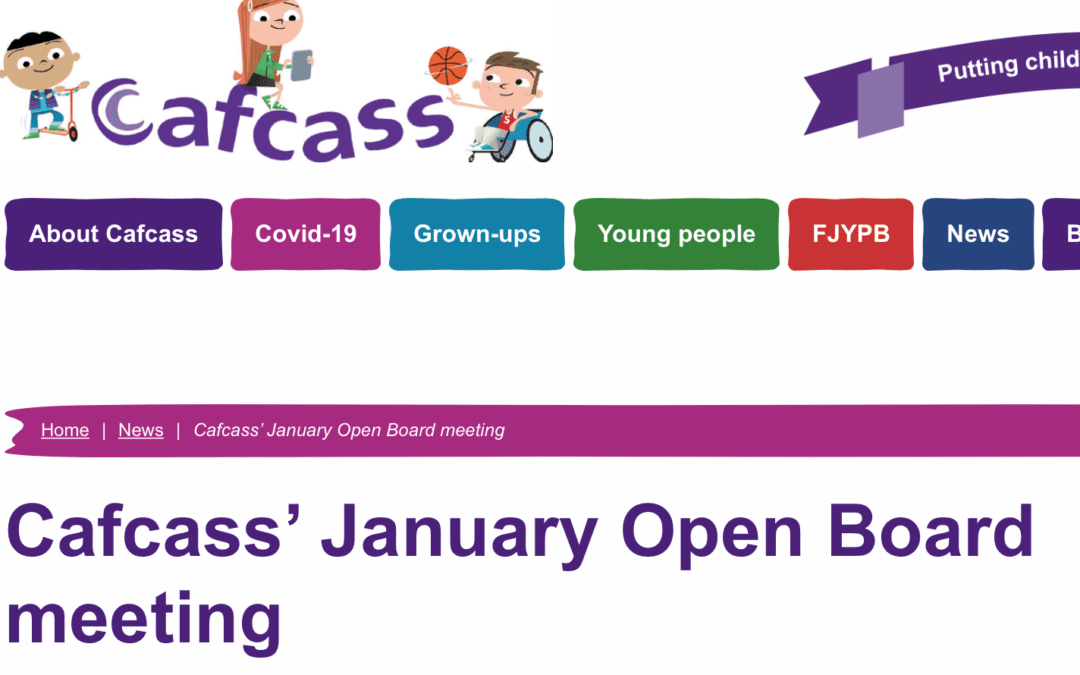
A Crisis in allocating social work ‘Guardians’ to vulnerable children? And other news from the last Cafcass Open Board meeting
Cafcass have led for some time in opening certain board meetings to stakeholders and pre registered members of the public, and consistently lodging minutes on their website albeit a few months later. They now lodge not just the agenda but also the CEO report to every...
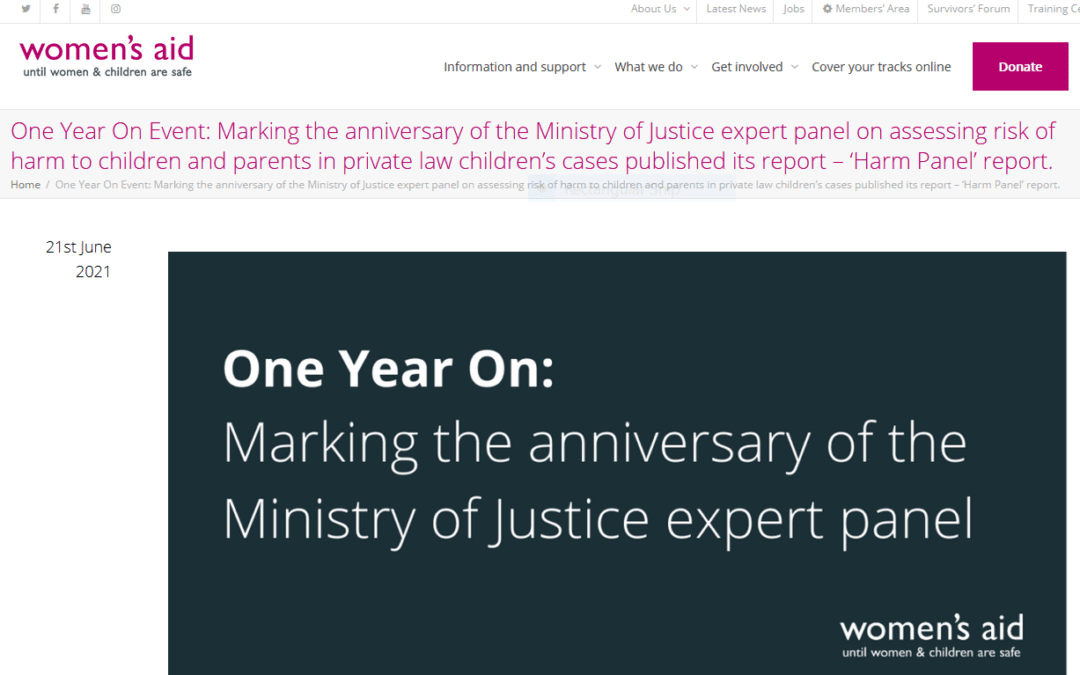
The Harm Report – one year on
June 2021 sees the first anniversary of publication of the report 'Assessing risk of harm to children and parents in private law children cases' (the Harm report). We have published a number of posts about the report. The UK government responded to the report that...

Family Court Reporting Watch Roundup
Welcome to the Roundup, where we correct, clarify and comment on media reports of family court cases, explain and comment on published family court judgments and highlight other transparency news MEDIA COVERAGE OF FAMILY COURT MATTERS The Times - Published a series of...
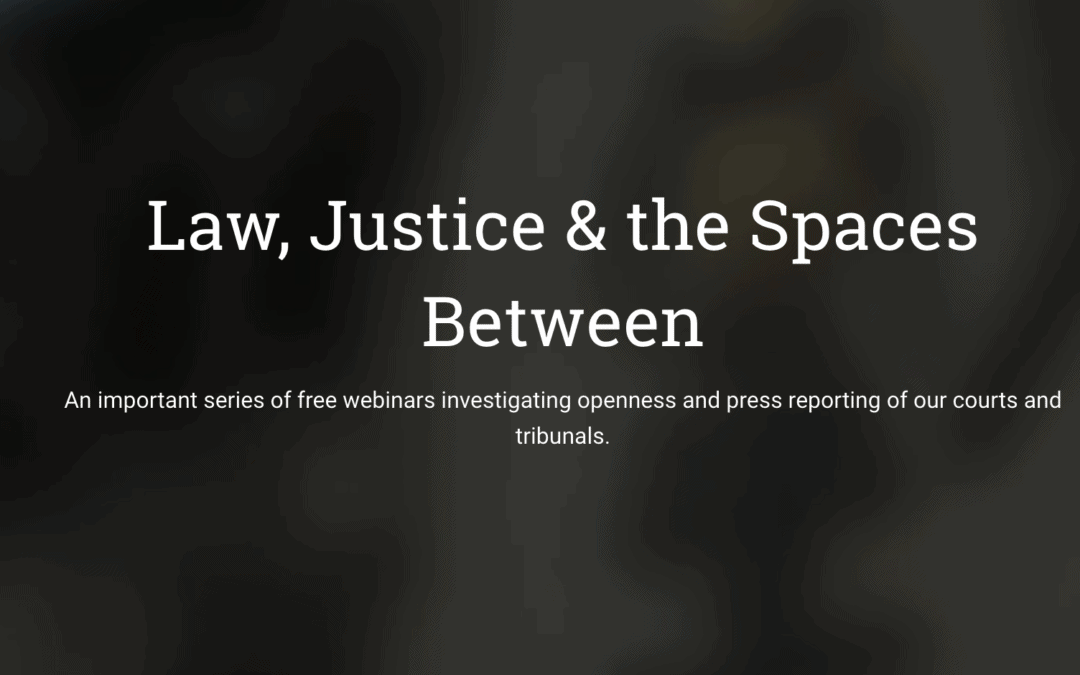
Law, Justice & the Spaces Between
Transparency enthusiasts may be interested in this exciting series of free webinars running in January to March, investigating openness and press reporting of our courts and tribunals. The webinars have been organised by Transparency Project journalist Louise Tickle...
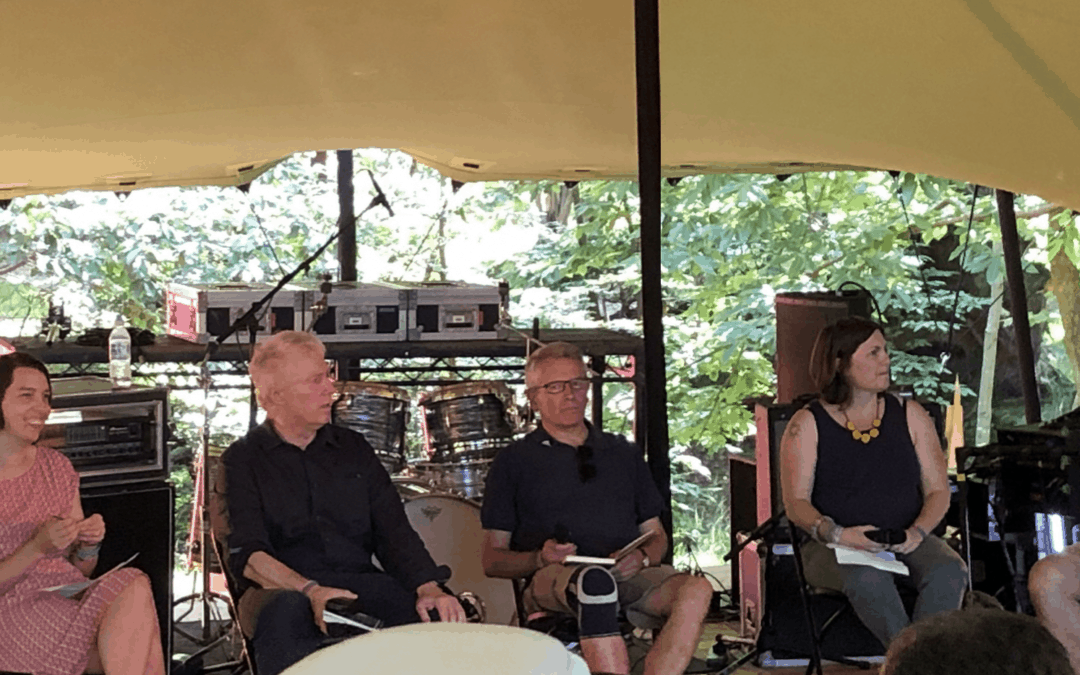
Byline Festival
This blog post originally appeared as our monthly column for November 2019 in Family law at Family Law [2019] Fam Law 1334. During the summer vacation, the Transparency Project took its message to the people. We organised two events at the Byline Festival in East...
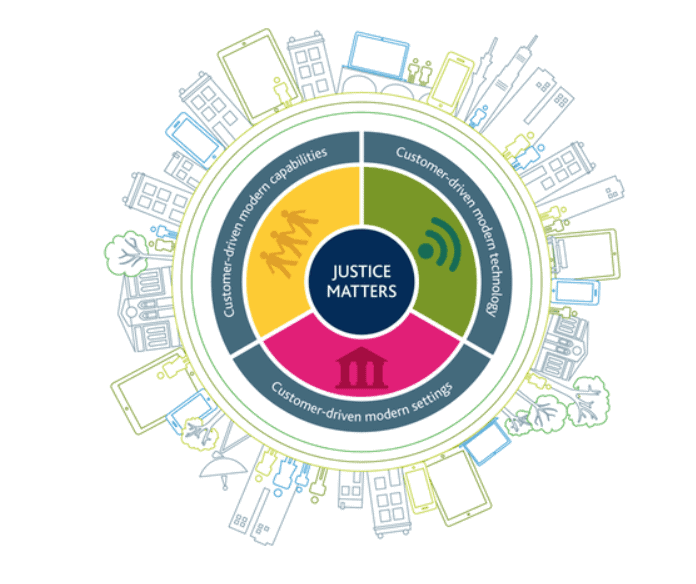
The Public and the ‘Future Court’
This is a joint post by Alice Twaite and Judith Townend A Future Court and Tribunal Service Built for Users was the title of Tuesday’s HMCTS annual public event to inform court users and their representatives about progress of the court modernisation programme, 12...

A Byline Festival conversation about Truth, Trust and Transparency in the Courts
From L to R: Sophie Walker, Mark Hanna, Brian Cathcart, Lucy Reed and Adam Wagner “A riot of independent journalism and free speech” is how the Byline Festival describes itself. It’s a varied mix of arts, literature, journalism and music, but running through it all is...
